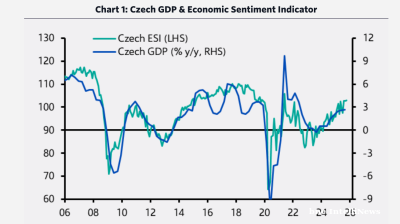The US is resisting calls from European governments to reduce the G7 price cap on Russian oil from $60 to $45 per barrel, frustrating efforts by the EU and UK to increase financial pressure on Moscow as leaders meet for a G7 in Canada.
As bne IntelliNews reported, the oil sanctions have largely become a spent cannon, as they have failed to cut into Russian revenues after customers in Asia ignored the sanctions and Europe itself was still forced to import large amounts of Russian LNG.
In parallel, the European Commission said it will also not limit the EU's reliance on Russian nuclear fuel alongside its proposals to ban Russian gas, EU Energy Commissioner Dan Jorgensen said on June 16. The Commission is due to propose legal measures this week to end the EU's Russian gas imports by the end of 2027 – a goal the EU executive announced last month.
According to officials familiar with the G7 talks, the EU and UK are still exploring the possibility of unilaterally lowering the cap if Washington does not sign up to the new sanctions. Since US President Donald Trump took office at the start of this year, the US has imposed no new sanctions on Russia whatsoever.
The new lower oil price cap proposal is aimed at curbing Russia’s oil revenues after oil prices fell to the previous cap of $60 a barrel recently. However, in the last few days oil prices have been pushed up again to around $72 following the Israel attack on Iran on June 13.
Participants at the G7 summit in June will consider cap options ranging from a $30 to $50 ceiling, according to Alexander Khara, an expert at the Center for Defence Strategies. “We expect more pressure on Russia. Foreign Minister Andriy Sibiga spoke about $30 per barrel as a new price ceiling (today it is $60). I do not know whether the G7 will agree to this, but it is interesting that among the invitees is also the crown prince of Saudi Arabia, Mohammed bin Salman. He is the person who can easily increase oil production and thus, even without agreements on a significant price reduction, lower it,” Khara told Bloomberg.
While analysts view a halving of the price ceiling as unlikely, even a moderate reduction would strain Russian finances. European Union High Representative for Foreign Affairs Kaja Kallas stated the EU might lower the ceiling independently of the US.
The European Commission’s latest sanctions package proposes reducing the seaborne crude price cap to $45 per barrel. It also includes measures targeting the Nord Stream pipelines, Russia’s shadow fleet of tankers and dozens of financial institutions.
“We are ramping up pressure on Russia because strength is the only language that Russia will understand,” European Commission President Ursula von der Leyen told reporters in Brussels a week earlier. “Oil prices have gone down (...) so we need to adapt to the changed market conditions.”
EU sanctions envoy David O’Sullivan told Euractiv that the “starting point” for talks on a revised cap is to seek G7 agreement. “I think if we and the rest of the G7 were to back a lower price and the Americans were not, it's still something to be envisaged,” he said. “But I think our preferred outcome is always that we move forward with the G7 as a united bloc.”
People familiar with internal discussions told Bloomberg the final decision on the cap lies with Trump, though Washington has shown no signs of altering its position since the G7 finance ministers’ meeting earlier this year.
Meanwhile, the European Commission’s eighteenth sanctions package targets nine individuals and 33 legal entities, including the Russian Direct Investment Fund and firms supporting Russia’s military-industrial complex. It also proposes sanctions on 77 additional tankers and aims to expand financial restrictions to cover 22 more banks in Russia and third countries. A ban on imports of refined petroleum products from Russian raw materials and export restrictions on goods worth over €2.5bn ($2.68bn) annually are also included.
Sanctions are starting to cut into Russian oil company profits even if they are not badly hurting the Kremlin’s revenues. And the recent falls have more to do with lower prices than the sanctions themselves say analysts.
RosStat data show that net profits of oil and gas firms dropped by nearly 50% in the first quarter of 2025 to RUB789.5bn ($8.81bn), down from RUB1.45tn ($16.18bn) a year earlier. Refinery profitability declined by 95.7% to RUB4.5bn ($50mn). Weekly oil export revenues have reached a 2.5-year low of $1.2bn.
News

Russia floats missile supplies to Maduro as US pressure mounts
A prominent Russian lawmaker has suggested that Moscow could supply Venezuela with advanced weapons systems, including the new Oreshnik ballistic missile, as Caracas desperately seeks military assistance amid the escalating US military build-up.

Guinea’s Doumbouya enters presidential race with major opposition parties excluded
Guinea’s junta leader Mamadi Doumbouya has entered the December 28 presidential race under a new constitution that allows members of the transition government to stand and extends presidential terms.

Russia closing the trap as its forces expand control of Pokrovsk
The stronghold city of Pokrovsk in the heart of the Donbas now risks “becoming a graveyard for Ukraine’s finest,” Euromaidan Press reports as Russian forces expand their control and threaten to encircle hundreds of Ukraine’s best troops.

Czech election winner Babiš signs coalition agreement with SPD and Motorists
ANO and its partners are poised to form the most rightwing cabinet in the country’s history.




